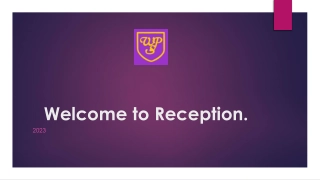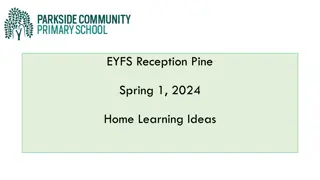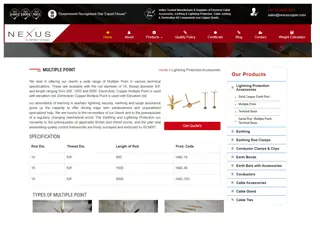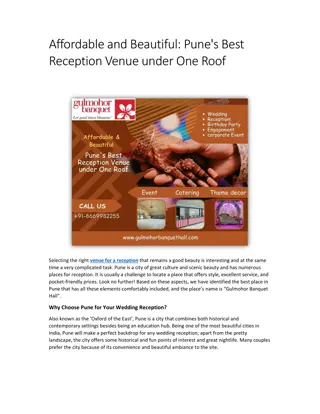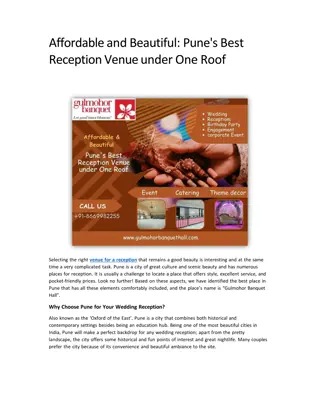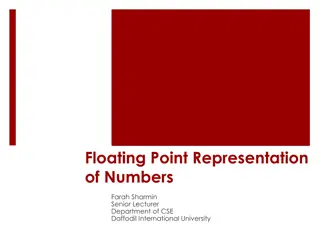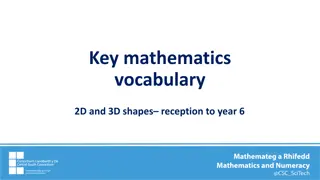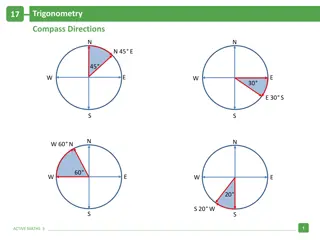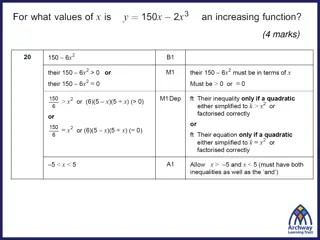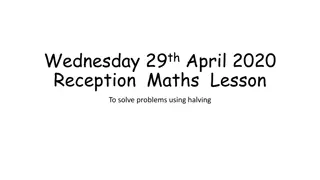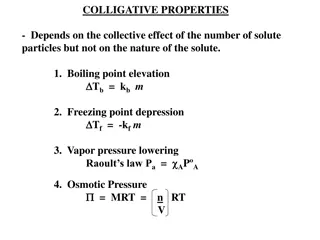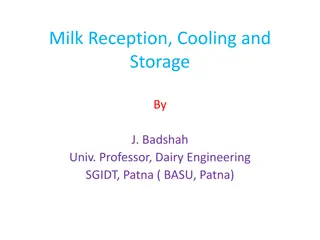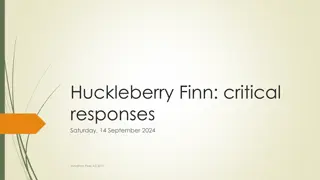
Early Years Foundation Stage (EYFS) and Supporting Child Development
The Early Years Foundation Stage (EYFS) is crucial in a child's development from birth to five years old, focusing on learning, health, and safety. The seven areas of learning encompass emotional development, social skills, language acquisition, and physical activity. Engaging children in conversations, reading, and physical play supports their cognitive and physical growth, laying a strong foundation for their future learning.
Download Presentation

Please find below an Image/Link to download the presentation.
The content on the website is provided AS IS for your information and personal use only. It may not be sold, licensed, or shared on other websites without obtaining consent from the author. If you encounter any issues during the download, it is possible that the publisher has removed the file from their server.
You are allowed to download the files provided on this website for personal or commercial use, subject to the condition that they are used lawfully. All files are the property of their respective owners.
The content on the website is provided AS IS for your information and personal use only. It may not be sold, licensed, or shared on other websites without obtaining consent from the author.
E N D
Presentation Transcript
EYFS Manager: Mrs Emma Goodfellow Hedgehogs Teachers: Emma Goodfellow and Jenn Sharman Foxes Teachers: Miss Stevenson and Mrs Chivers Teaching Assistant: TBC
Meeting To give you an overview of the 2021 Early Years Foundation Stage (EYFS) and the curriculum. To find out how the school day is organised. To understand how you can support your child at home.
What is the Early Years Foundation Stage ( E.Y.F.S)? The Early Years Foundation Stage covers the first stage of a child s care from birth to five years old. It sets the standards to ensure that all children learn and develop, as well as keeping them healthy and safe. All schools and Ofsted registered early years providers in England must follow the EYFS. Also included in the EYFS are the seven Areas of Learning.
The seven areas of learning are: Children learn: how to understand their own feelings and those of others to manage emotions, develop a positive sense of self, set themselves simple goals, have confidence in their own abilities, to persist and wait for what they want and direct attention to look after their bodies, including healthy eating, and manage personal needs independently. how to make good friendships, co-operate and resolve conflicts.
The development of childrens spoken language underpins all seven areas of learning and development. Children s back-and-forth interactions from an early age form the foundations for language and cognitive development. By commenting on what children are interested in or doing, and echoing back what they say with new vocabulary added, staff will build children's language effectively. Staff will read frequently to children, and engage them actively in stories, non-fiction, rhymes and poems, and then provide them with extensive opportunities to use and embed new words in a range of contexts. This will give children the opportunity to thrive. Through conversation, story-telling and role play, the children will become comfortable using a rich range of vocabulary and language structures
Physical activity is vital in childrens all-round development, enabling them to pursue happy, healthy and active lives. By creating games and providing opportunities for play both indoors and outdoors, staff will support children to develop their core strength, stability, balance, spatial awareness, co-ordination and agility. Gross motor skills provide the foundation for developing healthy bodies and social and emotional well-being. Fine motor control and precision helps with hand-eye co-ordination which is later linked to early literacy.
It is crucial for children to develop a life-long love of reading. Reading consists of two dimensions: language comprehension and word reading. Language comprehension (necessary for both reading and writing) starts from birth. It only develops when adults talk with children about the world around them and the books (stories and non-fiction) they read with them, and enjoy rhymes, poems and songs together. Skilled word reading, involves both the speedy working out of the pronunciation of unfamiliar printed words (decoding) and the speedy recognition of familiar printed words. Writing involves transcription (spelling and handwriting) and composition (articulating ideas and structuring them in speech before writing.
Children should be able to count confidently, develop a deep understanding of the numbers to 10, the relationships between them and the patterns within those numbers. Children will develop a secure base of knowledge and vocabulary from which mastery of mathematics is built. Children will develop their spatial reasoning skills across all areas of mathematics including shape, space and measures. It is important that children develop positive attitudes and interests in mathematics, look for patterns and relationships, spot connections, have a go , talk to adults and peers about what they notice and not be afraid to make mistakes.
Understanding the world involves guiding children to make sense of their physical world and their community. The frequency and range of children s personal experiences increases their knowledge and sense of the world around them from visiting parks, libraries and museums to meeting important members of society such as police officers, nurses and firefighters. In addition, listening to a broad selection of stories, non- fiction, rhymes and poems will foster their understanding of our culturally, socially, technologically and ecologically diverse world.
The development of childrens artistic and cultural awareness supports their imagination and creativity. Children will be given regular opportunities to engage with the arts, enabling them to explore and play with a wide range of media and materials. The quality and variety of what children see, hear and participate in is crucial for developing their understanding, self- expression, vocabulary and ability to communicate through the arts. The children will learn to interpret and appreciate what they hear, respond to and observe.
We have giant floor books which will show photographs, key vocabulary and learning objectives. These will be available for you to view at stay and play sessions/family reading sessions and will be used with the children to reinforce their learning. Online open evenings will be held twice a year and a drop in session in July. Book looks are held at other times in the year A full written report will be sent home in July. Children in Reception get a brief termly report at Christmas and Easter. At the beginning of Reception the children will complete a national Reception Baseline Assessment. We will also complete our own baseline assessments.
At the end of the reception year, children are assessed against the 17 Early Learning Goals. It is important to remember that: The ELGs are not a test. We will use what they already know about a child to make our decisions. Changes were made in 2021 to the Early Learning Goals Exceeding judgements have been removed. Children are now encouraged and challenged to have a greater depth and understanding of things before moving onto new learning.
8.35 Gate opens 8.40 Children to come in classroom door without an adult. Children choose a book to read. 8.45 Registration and helpers 8.50-9.50 Maths and continuous provision 9.50-10.10 Outdoor play 10.10-11.30 English and continuous provision 11.30 12 Phonics 12-1 Lunch (Free school meal) 1- 1.10 Registration 1.10- 2.30 Topic and continuous provision 2.30-2.50 Snack and playtime 2.50 Story, songs and home at 3.15pm from the classroom door. Gate opens at 3.05pm.
The children will be in a mixed Reception/Year 1 Hedgehogs class taught by Mrs Goodfellow and Mrs Sharman or a mixed Reception/Year 1 Foxes class taught by Miss Stevenson and Mrs Chivers. For those children who have not attended our Pre-school, they will have the opportunity to visit the Reception classrooms and garden on Monday 24th and Tuesday 25th June. Please bring them to the main office door at 9.30am and collect them from there, after lunch at 12.30pm. Please bring 3.25 in cash to pay for your child s lunch each day. For those children who already attend our Pre-school, the Reception staff have met your child so this will help ease their transition into Reception. They will also have the opportunity to visit the Reception classroom and garden on Monday 24th June and Tuesday 25th June. We will collect them from Pre-school on that day and take them back to Pre-school after lunch. If your child does not usually attend Pre-school on those dates, please bring them to the main office door at 9.30am and collect them from there at 12.30pm. If your child does not normally have lunch on that day, please bring 3.25 in cash to pay for your child s lunch each day. September start dates All Reception children will begin school full-time on Wednesday 4th September at 8.45am. THIS IS A CHANGE FROM PREVIOUSLY ADVISED. Year 1 children will begin the day before and will have a day to settle before being joined by the Reception children. Please make sure you bring your child on the correct day to allow the children time to settle in smaller groups.
Reading the phonics book, e book and completing any homework that is sent home. Read/share books at least 5 times a week, it does make a difference. Studies show that children who read at home make 20% better progress than children who never read at home. We can see this in school. Read our weekly blog which tells you what we have been learning in class. Talk about this learning with your child to reinforce new knowledge and skills. Ongoing-encourage mark making, shopping lists etc. Encourage children to talk, introduce new vocabulary, explain how things work etc! Practise counting at any time-climbing the stairs, shopping etc. Play simple board games Sing number rhymes and songs together Get your child to dress and undress independently, including putting coats on and pulling up zips. Encourage independent toileting (including wiping of own bottom), use of a knife for cutting food and a fork for eating, dressing and good hygiene habits blowing own nose etc!
We follow the Little Wandle Phonics scheme. We have a dedicated section on our website with lots of information: http://www.springfieldsfirstschool.org.uk/little-wandle/ Each week the children will have two reading books to read at home. One book will be sent via the e-book subscription which will be the book which your child has been learning from in school during the week. This book is key to reading practice as it is the one linked to our scheme for teaching phonics and reading. Later in the year your child will also come home with a book from the Floppy s Phonics range. This book will contain all of the sounds which your child has been learning at school. These books are called reading practice books . The children should be able to read the practice book with developing confidence and fluency without any significant help. The parent/carer s role is to listen with interest and, most importantly, to encourage and praise. The children will also have a library/sharing book for you to enjoy together. Initially the children may have books without words in them they are purely discussion books to help develop vocabulary. Children will not be given any ebooks for the first few weeks until we have completed our initial assessments. Physical books will not be sent home during the first term in Reception and you will purely have the e book to read.
Supplier- Schools in on Stone Business Park Please ensure that names are in EVERYTHING!!! Send coats EVERY DAY Sensible shoes (no laces) and no jewellery PLEASE do not send a large bag to school as we simply do not have room to store them. The children have been given a book bag by school and just need to bring a small PE bag with spare pants, socks, tights, trousers and skirts in, in case of accidents. This small bag will stay in school. Each day the children just need to bring one healthy snack, a water bottle and their book bag. Children will come to school dressed in their P.E. kits on Tuesdays (subject to change!) Fitness Friday children will come in their PE kit and school hoodie which is available from School s In uniform shop in Stone. A pair of wellies to stay in school for Forest School on Thursdays (subject to change) Labelled water bottles (containing water not juice if possible please) are needed every day.
There can be a lot to remember in the first few days, but please do not worry as your child will soon be teaching you the routines! All clothing named with proper labels not pen! Book bag everyday Milk every afternoon until they are age 5. Fruit/healthy snack (no yoghurts) if needed in the morning Free hot school dinner Wellies in school Named water bottle Fitness Friday (PE clothes) on a Friday!
Please let us know if someone different is collecting your child! Children collected from the classroom door by 3.15pm Medical Any sickness or diarrhoea must be followed by at least 48 hours absence. Dietary requirements need to make an appointment to see the cook before the end of term. Head lice are common! Please check regularly and treat as recommended (day 1 and then 7 days later.) Any absence requires a telephone call to the school office by 9:15am Any prescribed medication can only be administered by prior arrangement with the school office Please complete and return all school forms by Friday 21st June at the latest. We need the forms before your child comes for their visit.
We look forward to a happy partnership in your child's first year at school and beyond. Useful website: www.foundationyears.org.uk

